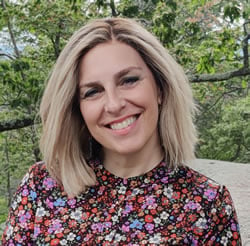Dear Readers,
Our custom is to study Pirkei Avot, Ethics of Our Fathers, one chapter every Shabbat during the long afternoons of the summer months. This week, we begin the cycle anew (after completing it in the six weeks between Passover and Shavuot).
There are different explanations as to why this tractate is called the ethics of our “fathers.”
Parents are the ones who provide the first lessons in ethics to their offspring. Children are naturally born self-centered. Parents teach them the meaning of giving and sharing, and the distinction between right and wrong. Hopefully, we model the behavior we want them to learn and inspire them to become principled, upright human beings.
The sages of the Mishnah are like parents to our nation in the sense that they teach us an ethical and moral code of behavior. They are considered our “fathers,” instructing and training us how to become better people.
(Another explanation is that this tractate is primarily directed at parents. Since it provides so much ethical training, it guides parents in how to model and raise morally inspired children.)
Preceding every chapter is an introductory Mishnah that we learn weekly:
All Israel has a share in the World to Come, as it is stated: “And your people are all righteous; they shall inherit the land forever. They are the shoot of My planting, the work of My hands, in which I take pride.”
These words are definitely encouraging, just as they are fundamental to realizing our abilities.
As we embark on studying and internalizing this tractate, we may feel like we are about to climb an impossible mountain in aspiring to achieve such high levels of behavioral refinement. This Mishnah reassures us that all of Israel has a share of the world to come. At our core, within each of us is a soul from G‑d, pristine and holy. We are “a branch of My planting, My handiwork,” a limb of the Divine Presence. We can reach far beyond what we think.
Moreover, even if we have drifted from G‑d and His Torah, our soul remains connected and can return. Even if we have not lived up to our potential, G‑d “dwells amongst them in the midst of their impurities.” Like a parent who always seeks the good in their child, G‑d doesn’t give up on us, even when we mess up.
Balaam, the non-Jewish prophet who sought to curse the Jewish nation, expressed the essence of our closeness.
“He perceived no iniquity in Jacob and saw no perversity in Israel; his G‑d is with him and the friendship of the King is in him.” (Numbers 23:21)
Deep down, there is no iniquity. G‑d’s friendship is with us. The Hebrew word used for friendship, re’ah, denotes an extremely deep friendship; two people coming together as part of the same whole, for our soul is actually our bond with G‑d.
It is fundamental, however, that we regularly remind ourselves of this: “All of Israel has a share ... .” Each one of us has our own share, talents and abilities—our own G‑d-granted gifts and individual life’s circumstances that we must cultivate and develop, as only each of us uniquely can.
Chana Weisberg
Editor, TJW



